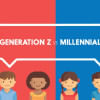Gen Z is writing the next chapter of entrepreneurship with AI

"The best way to predict the future is to create it."
— Peter Drucker, management consultant and author
In an era of rapid technological evolution, Generation Z (born between the mid-1990s and early 2010s) is emerging as a disruptive force in entrepreneurship. Unlike previous generations, Gen Z has never known a world without digital connectivity, and artificial intelligence (AI) is not a distant concept to them—it's an integral part of how they think, create, and solve problems. From AI-powered personal assistants to machine learning algorithms influencing daily decisions, Gen Z is not just embracing AI—they are using it to rewrite the rules of business.
The AI-native generation
For Gen Z, AI is not just a tool; it's a collaborator. While older generations often viewed AI with scepticism, fearing job displacement and automation, Gen Z sees AI as an enabler of creativity, efficiency, and accessibility. A recent Deloitte study found that 67 percent of Gen Z believe AI will significantly impact their careers, while over half are already integrating AI-driven platforms into their entrepreneurial pursuits (Deloitte, 2024). This deep integration signals a future where AI is not just supporting business strategies but reshaping them entirely.
More than ever, AI is democratising entrepreneurship (Shepherd and Majchrzak, 2022). Traditional barriers such as capital, staffing, and physical infrastructure are being dismantled. With AI-powered platforms like OpenAI, MidJourney, and Notion AI, a single entrepreneur can now handle what once required an entire team—from content creation and marketing to customer service and strategic planning. The rise of AI-assisted solopreneurs exemplifies how digital tools are levelling the playing field, allowing young entrepreneurs to challenge established companies with minimal resources.
Purpose-driven entrepreneurship
Unlike past generations, where profit maximisation often took precedence, Gen Z prioritises purpose alongside profitability. The intersection of AI and sustainability is particularly notable, as AI-driven solutions are being developed to tackle issues such as climate change, food waste, and ethical consumption. Companies like "Too Good To Go", which leverages AI to connect consumers with surplus food from restaurants and grocery stores, illustrate how Gen Z entrepreneurs are aligning business with impact.
An IBM (2022) study revealed that 62 percent of Gen Z consumers prefer brands that align with their values, reinforcing the notion that this generational shift is not just a passing trend—it's the new norm. Entrepreneurs who fail to integrate sustainability and ethics into their AI-driven ventures risk alienating a generation that expects businesses to stand for more than just profits.
The future of AI-driven entrepreneurship
AI-powered business ecosystems: The future of entrepreneurship will be built on AI-human collaboration. Research from MIT Sloan suggests that hybrid AI-human teams are more efficient and innovative than human-only teams. AI-powered analytics can help start-ups predict market trends, mitigate risks, and optimise decision-making. Companies leveraging AI as co-founders, advisers, and virtual employees will gain a competitive edge in a data-driven economy.
The rise of digital business models: AI is fuelling the expansion of digital-first and metaverse-driven business models. As virtual economies grow, AI-generated content, digital products, and virtual assistants will empower entrepreneurs to build and scale businesses without physical infrastructure. A 2023 Stanford study predicts that AI-driven virtual economies could contribute up to 15 percent to 20 percent of global GDP by 2035 (Gofman and Jin, 2024). Major brands have already begun selling AI-designed virtual fashion, catering to a new wave of digital consumers.
Hyper-personalisation and micro-markets: AI-driven hyper-personalisation is transforming the customer experience. Instead of one-size-fits-all offerings, AI allows businesses to cater to individual preferences through real-time data analysis. AI-powered recommendation engines, similar to those used by Netflix and Spotify, are now extending into e-commerce, offering curated product suggestions for each customer. However, this shift also raises critical policy concerns, including data privacy, algorithmic bias, and consumer manipulation.
Policy and ethical considerations
While AI-driven entrepreneurship presents boundless opportunities, it also introduces significant ethical and regulatory challenges.
Data privacy: With AI-powered hyper-personalisation, businesses are collecting unprecedented amounts of consumer data. Policymakers must enforce stricter data protection laws to prevent misuse and ensure transparency.
Algorithmic bias: AI systems are only as unbiased as the data they are trained on. Regulators must address fairness in AI decision-making to prevent systemic discrimination in hiring, lending, and customer engagement.
Job displacement: AI automation is transforming industries, creating both opportunities and risks. Governments and educational institutions must rethink workforce development strategies to equip future entrepreneurs with AI-related skills.
AI taxation and regulation: As AI takes on more roles traditionally held by human employees, policymakers are debating the taxation of AI-driven businesses to ensure fair economic contributions.
The leadership shift
Beyond business strategy, AI is reshaping leadership itself. With automation handling routine tasks, Gen Z entrepreneurs are focusing on creativity, emotional intelligence, and adaptability. Traditional hierarchical leadership models are giving way to agile, collaborative structures where AI and human intelligence work in tandem. The leaders of tomorrow will not be those who resist AI but those who harness its potential ethically and responsibly.
Final thoughts
Gen Z's deep integration with AI is not just shaping the future of entrepreneurship—it is rewriting what it means to build, innovate, and lead in an AI-driven world. Yet, this transformation comes with risks. A 2023 MIT Sloan study highlights that AI-human hybrid teams boost innovation, but concerns over job displacement, algorithmic bias, and data privacy persist. Meanwhile, Stanford research forecasts that AI-driven virtual economies will redefine global markets, necessitating regulatory frameworks around taxation, cyber security, and fair competition.
As AI and human intelligence continue to intertwine, the key question remains: will AI-driven entrepreneurship empower a new generation or widen inequalities? The answer depends on how well Gen Z balances innovation with ethical responsibility. To ensure AI remains an inclusive force, policymakers, educators, and business leaders must work together to foster responsible AI development. The next chapter of entrepreneurship is being written now, and Gen Z is at the helm—steering us into uncharted territory, where the only constant is change.
Dr Ariful Islam is an academic and entrepreneurship researcher specialising in mixed methods.
Dr Mohammad Imtiaz Hossain is a faculty member in Sunway Business School, Sunway University, Malaysia.
Dr Yasmin Jamadar is a faculty member in School of Business, Monash University, Malaysia.
Views expressed in this article are the authors' own.
Follow The Daily Star Opinion on Facebook for the latest opinions, commentaries and analyses by experts and professionals. To contribute your article or letter to The Daily Star Opinion, see our guidelines for submission.

 For all latest news, follow The Daily Star's Google News channel.
For all latest news, follow The Daily Star's Google News channel. 










Comments